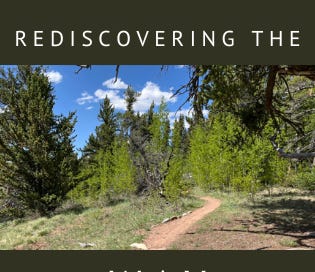People argue that what matters the most, or at least their practice reveals that what they believe matters most, are creeds. Correct theological beliefs are what matter, perhaps supremely so. Others say Jesus is much more concerned with our deeds, not what we profess to believe. As is often the case, both extremes miss something.
What if both matter?
A Christian and her church must do more than clarify creeds and theology within the Christian community; a faithful representation of the gospel of Jesus Christ occurs in a community of obedient believers who act to engage the world, demonstrating their creeds by their deeds.
~ Reggie L. Williams, summarizing a sermon by Pastor Adam Clayton of Abyssinian Baptist Church, in Bonhoeffer’s Black Jesus.
Many of us dismiss creeds, while others are too dismissive of the importance of deeds. As I’ve seen many say, perhaps one of the most important tests of the truth of our creeds are the deeds they produce. If the fruit of our lives doesn’t match the things we say we believe, perhaps we don’t really believe what we say. Perhaps we actually believe something else, and that something else is generating fruit that is not fitting for a follower of Jesus.
Examining oneself, including one’s actual creeds and deeds, is difficult in any era. But it has become increasingly so in our day, when screens are ubiquitous, and scream for our attention. There are many ways to combat this - set time limits, delete apps on our phones, put our phones on the other side of the room, turn off all but the needed notifications. But the way I’ve found most helpful to push back against the screams of screens is to practice regular times of solitude. Being alone, by myself, quiet before God for 15-20 minutes has been one of the best spiritual practices in my life the past several years. It helps my creeds become deeds, my beliefs result in actions of love.
I’ll close with this, from Richard Foster:
There was a time, not so very long ago, when solitude and silence were available to people by the normal conditions of everyday life. Not any longer! In our day we have to choose solitude and silence and plan our lives accordingly. It can be done, of course, especially as we catch a vision of their liberating qualities. Thomas Merton wrote, “It is in deep solitude that I find the gentleness with which I can truly love [others]… Solitude and silence teach me to love [others] for what they are, not for what they say.”
We come out of our solitude and live life together with our community of fellow believers, more enabled and empowered to demonstrate our creeds by our deeds.




Well, Dr. Austin, if it was a choice between milquetoast morals and a post explaining how evangelicals elected an authoritarian and what hope is left for evangelical ethics, showing that evangelicalism still has something to offer or, like Gushee, how you are leaving it, I see you chose... well, this.